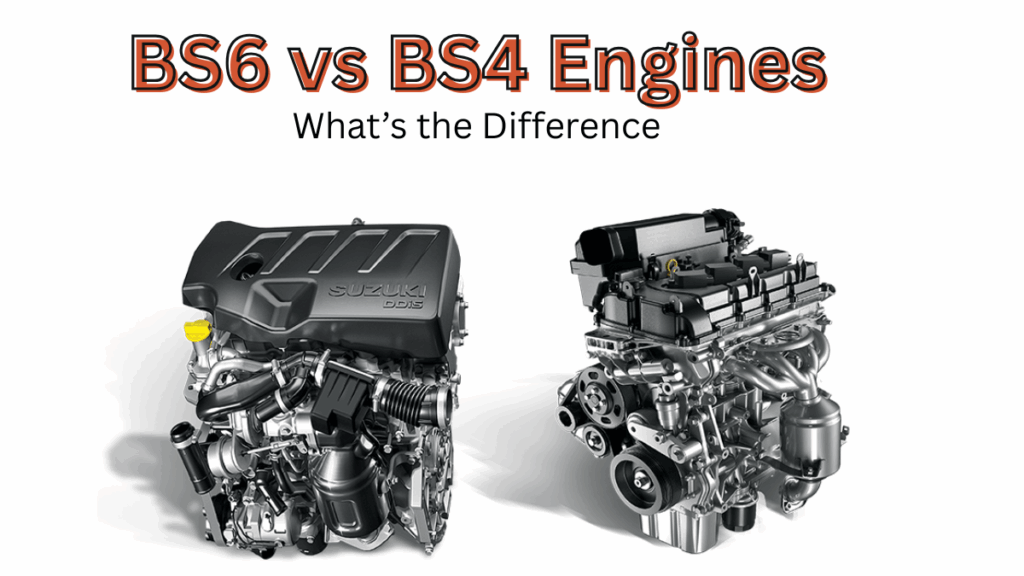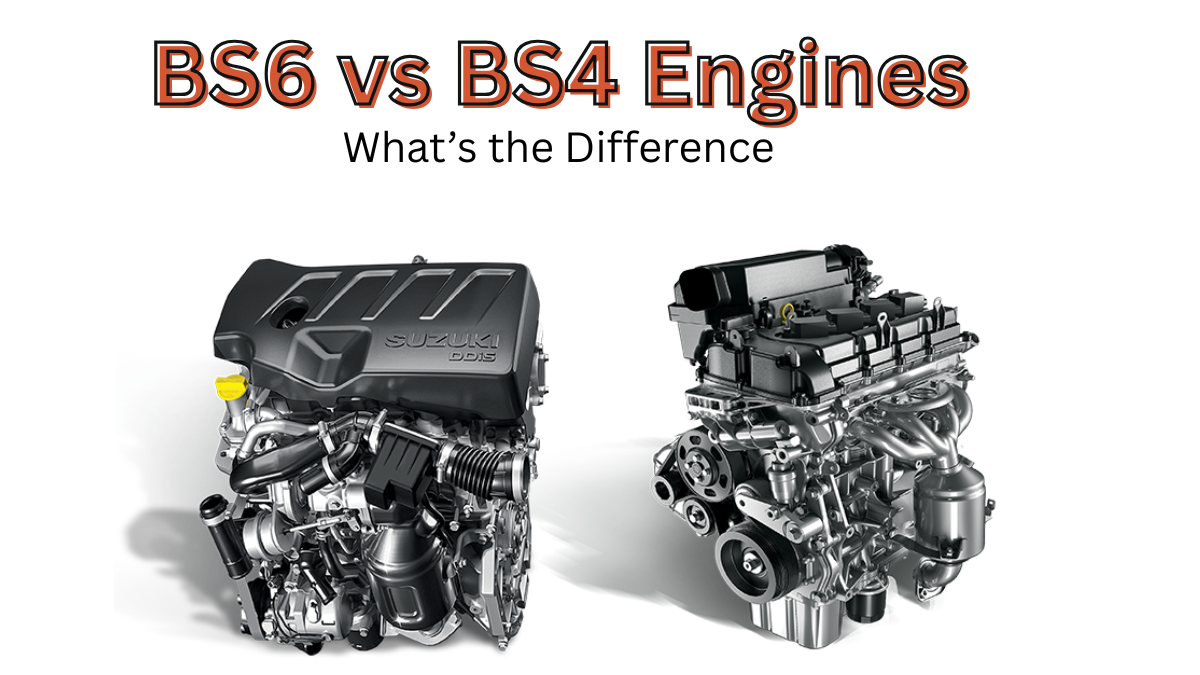If you’ve been thinking of buying a new vehicle or just keeping up with automotive trends in India, chances are you’ve come across the terms BS4 and BS6 engines. But what do they really mean—and why should you care?
Let’s break it down in simple, relatable terms.

What Are BS4 and BS6 Engines?
BS stands for Bharat Stage, which are emission standards set by the Government of India to regulate the output of air pollutants from internal combustion engines. Think of them as the government’s way of ensuring vehicles are kinder to the environment.
-
BS4 (Bharat Stage 4) was implemented nationwide in April 2017.
-
BS6 (Bharat Stage 6) replaced BS4 and came into effect on April 1, 2020.
Yes, we jumped directly from BS4 to BS6, skipping BS5 entirely, to align ourselves with global environmental benchmarks.
Why the Shift from BS4 to BS6?
India has long struggled with air pollution, especially in urban areas. By tightening the emission norms India follows, the government aims to reduce harmful pollutants like nitrogen oxides (NOx), particulate matter (PM), carbon monoxide (CO), and hydrocarbons (HC).
The move from BS4 to BS6 is a significant leap in emission control technology.
A Quick Comparison Between BS6 and BS4 Engines
Here’s a side-by-side look to understand how BS6 engines differ from their BS4 counterparts:
| Feature | BS4 Engines | BS6 Engines |
|---|---|---|
| Emission Standards | Less strict | Much stricter |
| Sulphur Content in Fuel | 50 ppm | 10 ppm |
| NOx Emissions (Diesel) | Higher | Reduced by 70% |
| Particulate Matter (PM) | Not regulated | Strictly monitored (use of DPF) |
| OBD (On-Board Diagnostics) | Not mandatory | Mandatory |
| SCR and DPF Technologies | Rarely used | Widely adopted |
| Fuel Economy | Slightly better | Slightly reduced (due to emission tech) |
| Cost of Vehicles | Lower | Slightly higher |
This comparison between BS6 and BS4 engines clearly highlights the technological and environmental leap we’ve taken with the BS6 norm.
BS6 Advantages: Why This Upgrade Matters
The switch to BS6 might seem technical, but it’s something that affects all of us—drivers, passengers, and even pedestrians. Here’s why it matters:
Cleaner Environment
-
Reduced emissions result in cleaner air.
-
Less harmful gases mean fewer health issues and better air quality, especially in congested cities.
Better Engine Performance
-
BS6 engines are equipped with advanced technology like DPF (Diesel Particulate Filter) and SCR (Selective Catalytic Reduction).
-
They offer smoother rides and optimized combustion.
Cleaner Fuel
-
BS6-compliant fuel has 80% less sulphur than BS4 fuel.
-
This not only reduces emissions but also enhances engine longevity.
Advanced Diagnostics
-
Vehicles now come with On-Board Diagnostics (OBD) that monitor real-time emissions and engine health.
These BS6 advantages are not just technical upgrades—they’re steps toward a greener, healthier India.
The Impact on Consumers
So, what does this mean for you as a car or bike owner?
-
You can no longer register BS4 vehicles. Only BS6-compliant vehicles are legally allowed post-April 2020.
-
Maintenance costs may rise, especially for diesel vehicles, due to new components like DPF.
-
Fuel compatibility is essential. BS6 engines require BS6 fuel for optimal performance.
Challenges and Concerns
While BS6 is a leap forward, it’s not without hurdles:
-
Higher upfront vehicle cost due to added tech.
-
Fuel price differences in certain areas.
-
Uncertainty in rural markets, where BS4 vehicles were more affordable and accessible.
Still, the long-term BS6 advantages outweigh these short-term concerns.
Final Thoughts
The comparison between BS6 and BS4 engines is more than just a checklist of technical upgrades—it’s a reflection of India’s commitment to sustainable mobility. As emission norms in India evolve, it’s important for consumers to stay informed and make environmentally responsible choices.
FAQs
1. Can I still buy a BS4 vehicle in India?
No. As of April 1, 2020, the sale and registration of BS4 vehicles have been banned across India. Only BS6-compliant vehicles are allowed.
2. What happens if I use BS4 fuel in a BS6 engine?
Using BS4 fuel in a BS6 engine can damage the emission control system and reduce performance. Always use BS6 fuel with BS6 vehicles.
3. Are BS6 vehicles more expensive to maintain?
Yes, slightly. BS6 vehicles come with complex components like DPF and OBD, which may require specialized maintenance and occasional filter cleaning.
4. How does BS6 contribute to controlling pollution in India?
BS6 norms significantly reduce harmful emissions like nitrogen oxides and particulate matter, helping improve air quality and reduce pollution-related health issues.
Click here to learn more
